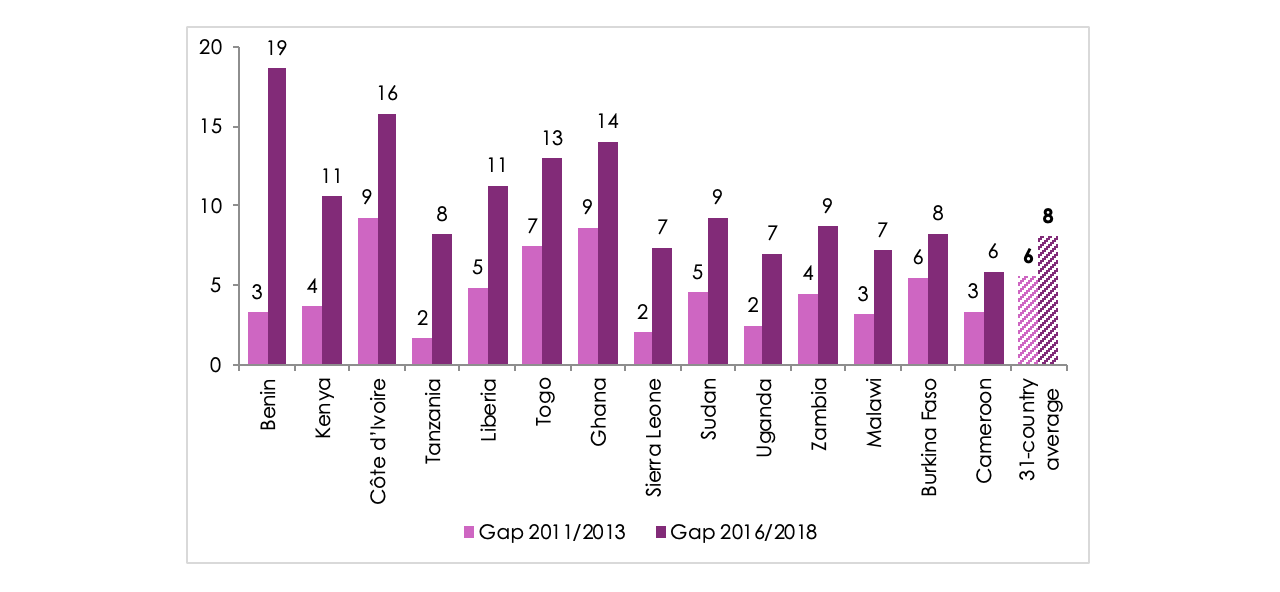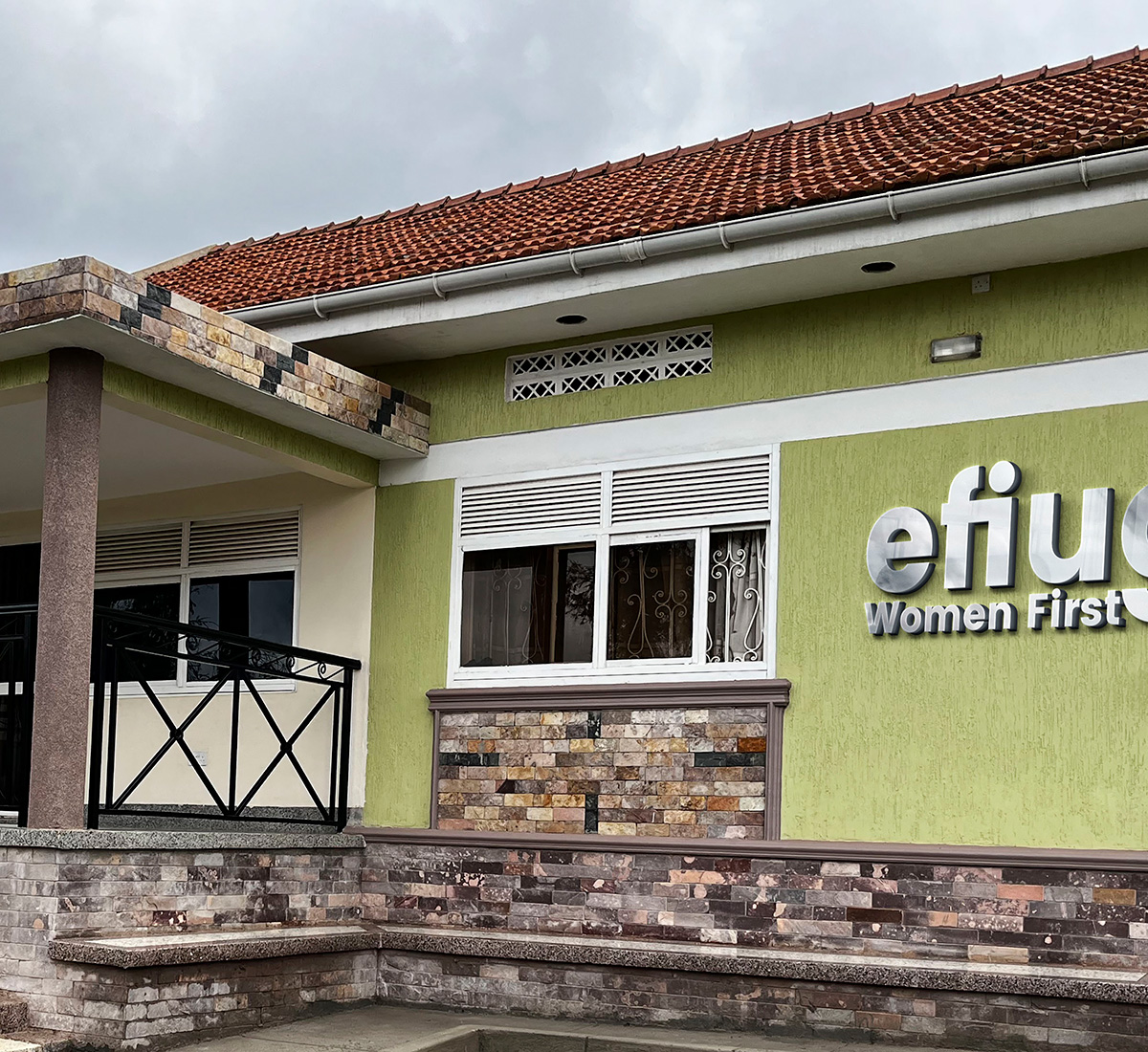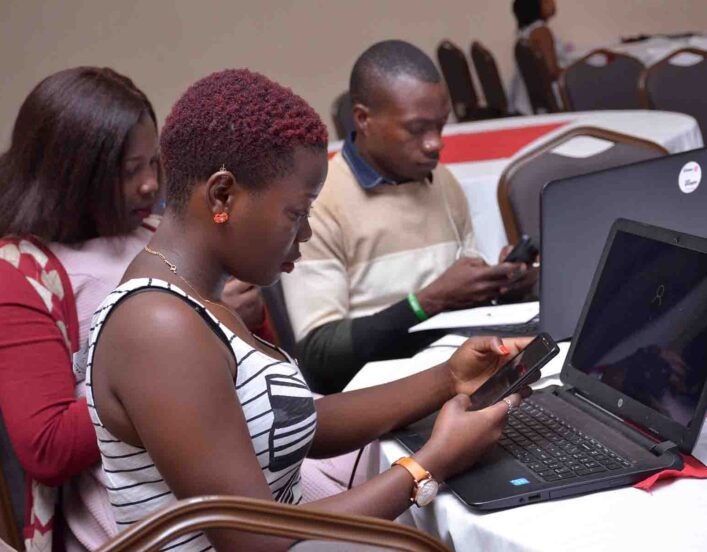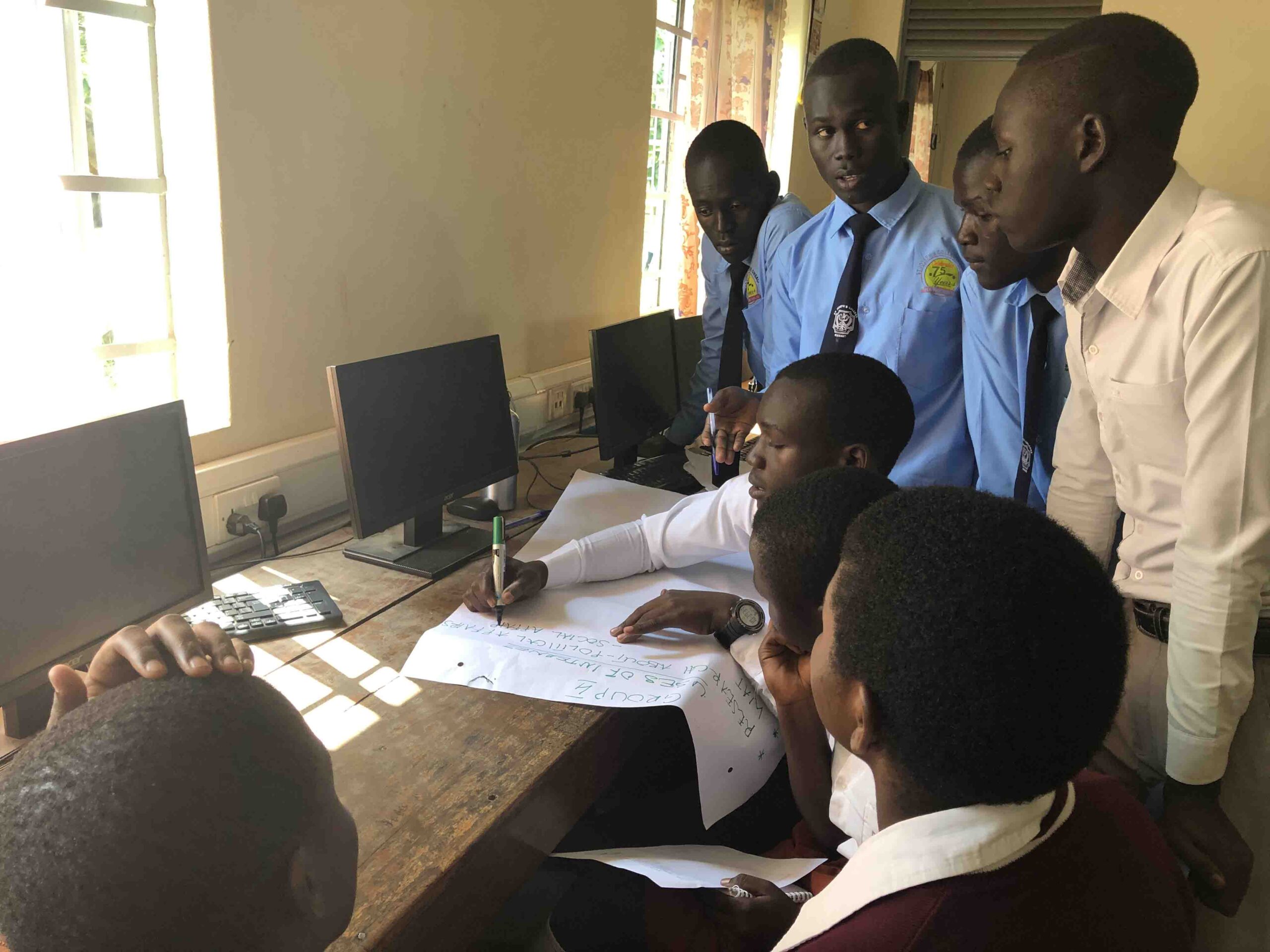Digital Literacy Program
The Digital Literacy Program equips women and girls with essential digital skills, enabling access to online resources and participation in the digital economy.
More skills, more steel!!
Digital literacy is crucial, with only 53.6% of the global population having internet access in 2019 (International Telecommunication Union). In Uganda, internet penetration is just 24% (UCC, 2021). EFIUG’s Digital Literacy Program equips women and girls with essential digital skills, enabling access to online resources and participation in the digital economy.
In Uganda, digital skills can increase women's employment opportunities by 50% and boost their income potential (GSMA, 2020). EFIUG trains children aged 9-18 in online safety within 26 PED schools and teaches women to leverage technology at work and learn new skills online, fostering a more inclusive, skilled workforce.
EFIUG’s Digital Literacy Program also encourages innovation in ICTs, contributing to economic growth and development. With a projected 22% increase in tech jobs by 2030 (U.S. Bureau of Labor Statistics), the program encourages women and girls to explore ICT careers, leading to a more diverse, innovative tech industry and improved health, education, and economic outcomes.
Women in African access less internet than men

Why women need this
Digital literacy is a powerful tool for transforming the lives of girls and women, offering them opportunities for personal and professional growth. In today's increasingly digital world, access to digital skills is essential for overcoming barriers and achieving success. By providing training in digital literacy, EFIUG is empowering women and girls to take control of their futures.
Access to digital tools and resources enhances educational opportunities for girls. Digital literacy allows them to participate in online learning, access educational materials, and connect with mentors and peers worldwide. This not only improves their academic performance but also opens doors to higher education and professional development opportunities that were previously out of reach.
In the workforce, digital literacy is a critical skill that can significantly boost employability. Women with digital skills are better equipped to navigate the modern job market, access remote work opportunities, and excel in various industries. This increased employability leads to greater economic independence, financial stability, and the ability to support their families and communities.
Beyond education and employment, digital literacy also plays a crucial role in enhancing social and health outcomes. Women who are digitally literate can access vital health information, participate in telehealth services, and engage in online communities that provide support and advocacy. This connectivity helps reduce isolation, improves mental health, and empowers women to make informed decisions about their health and well-being.
By integrating digital literacy into their daily lives, women and girls become more confident and capable in navigating the digital world. This confidence extends to other areas of their lives, fostering leadership skills and encouraging active participation in community and societal issues. As a result, digital literacy not only empowers individuals but also contributes to the broader goal of gender equality and sustainable development.
Gender gap in ICT and Online gender based violence in Uganda
The Role of Information and Communication Technologies (ICTs) in Poverty Reduction is widely recognized.
Read more
Resources

Policy Recommendations: Digital Literacy for women
Digital literacy is a vital skill in today’s globalized world, offering women and girls opportunities for personal growth, economic empowerment, and social well-being.
Take Action
There are lots of ways to get involved with efiug’s work to advance equity. Together, we can make a difference in the lives of women and girls.



